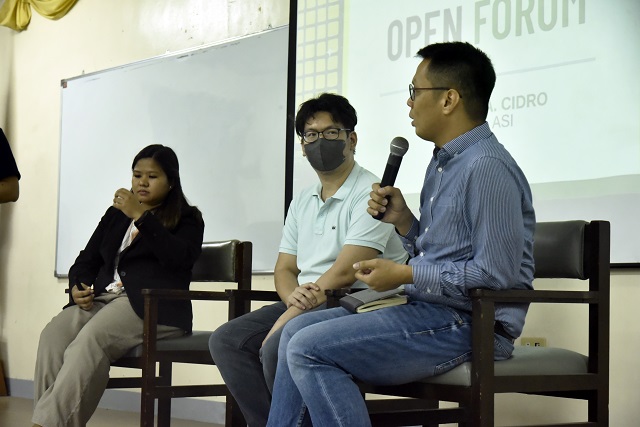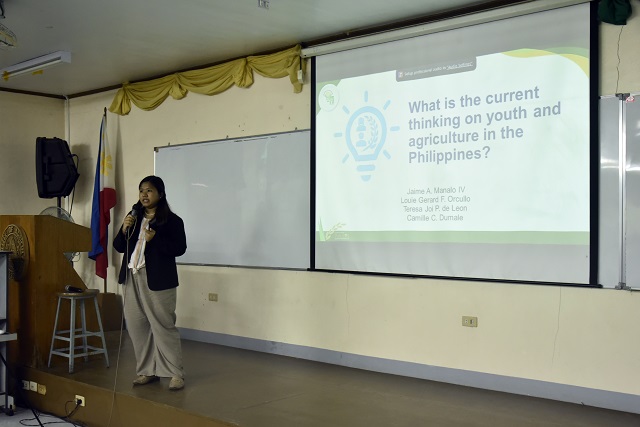
To stay or stray?
Social scientists based in the Philippine Rice Research Institute (PhilRice) recently presented their significant findings on youth engagement and agriculture in the Philippines to the faculty and students of the University of the Philippines in Los Baños (UPLB).
According to Teresa Joi P. de Leon, the paper’s main author, review of literature on the said topic from 2011 to 2021 showed that the chance is high for young people to stay in agriculture if their issues with it such as employment and income will be addressed.
She also said that there is a mismatch between the current youth engagement strategies and the reasons for straying away from the sector.
“This mismatch is likely to result in disastrous consequences given that there are major issues such as the cultural perceptions on agriculture that are not really being addressed. Nonetheless, three key advocacies appeal to young people: food security, health and wellness, and community building,” de Leon said.

Analyzing 21 articles published in ProQuest and Google Scholar, de Leon and her team concluded that the government primarily spearheads youth and agriculture initiatives, encompassing a range of programs from scholarships to community development. Notably, engagement initiatives in the country between 2011 and 2021 appeared to be particularly prominent in Mindanao.
Her team also observed that mixed qualitative and quantitative methods were used in conducting the Philippine youth and agriculture studies. However, she stressed that the out-of-school youth is underrepresented in the literature.
The findings were incorporated into the paper, titled, “What is the current thinking on youth and agriculture in the Philippines?,” which de Leon co-authored with Louie Gerard F. Orcullo and Dr. Jaime A. Manalo IV.
Accepted for publication by the Rice-Based Biosystems Journal, the paper was presented as part of the Durungawan Series of the Agricultural Systems Institute of UPLB.
“The knowledge I acquired from the seminar was rich and nuanced. As was presented in the seminar, the common belief that the youth are not interested in agriculture isn’t true for the most part. There were complex reasons the youth stray away from agriculture. It’s important that we understand the youth who are the future of agriculture and our country,” participant Ian Gabriel R. Mangulabnan said.
“The seminar was our stakeholder engagement post-research conduct. It was our way of engaging the academic community with respect to our results, especially that universities like UPLB can very well bring the discourse to another level,” Manalo said.
“Bringing the discourse forward means acting on some of the recommendations like looking for ways on how to better engage out-of-school youth in agriculture, which was a main recommendation in our study,” he added.
Dr. Virgilio V. Villancio, former director of College of Agriculture and Food Science – Agricultural Systems Institute; Dr. Rodmyr F. Datoon, division head of the Department of Agricultural Education and Rural Studies; Dr. Dario Cidro, Assistant Professor III; Marianne R. De Luna, University Researcher III, and Maria Cecilia D.C. Caceres, University Researcher II spearheaded the conduct of the seminar.




